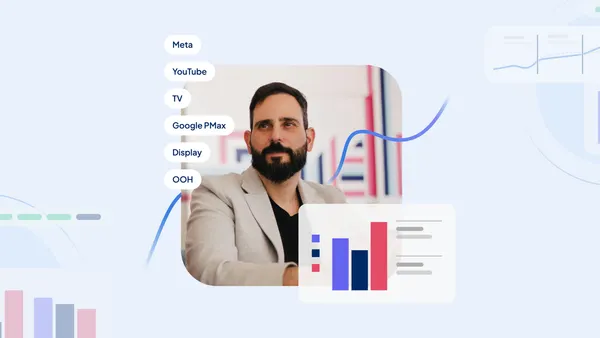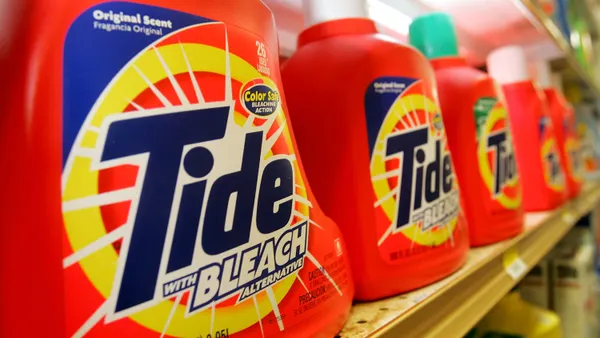Dive Brief:
- Sixty percent of CMOs will to cut their marketing analytics departments by 50% by 2023, due to a “failure to realize promised improvements,” according to a new forecast from Gartner, “Predictions 2019: Marketing Seeks a New Equilibrium.” Other factors contributing to the cuts include shifting customer behavior, regulatory pressures, organizational shifts and automation disruption.
- Gartner predicts autonomous marketing systems will issue 55% of multichannel marketing messages based on marketer criteria and real-time customer behavior by 2023, resulting in a 25% lift in response rates. That same year, audiences are predicted to watch 20% fewer minutes of video ads per day, leading brands to embrace short-form video ads. By 2022, content creators are expected to produce more than 30% of their digital content using artificial intelligence, which will enhance productivity and ad effectiveness, while disrupting the creative process.
- Other predictions include a 25% reduction in investment of marketing-funded customer experience programs, and a shift in CMOs' top priority from CX to profitability by 2022. Brands that invest in user-level control over marketing data will decrease customer churn by 40% and boost lifetime value by 25% in 2023, per Gartner.
Dive Insight:
Marketers continue to struggle with pulling insights from the vast amounts of data that they collect, and many CMOs are hiring new analytics teams as a solution. The prediction that most CMOs will cut their analytics teams by half in the future is based on four areas of change: consumers embracing the convenience of voice, growing regulatory pressure of how data is used, high performance expectations from the c-suite and the growing automation of some marketing functions.
Gartner's predictions are in line with a recent Kantar study showing that marketers are having trouble determining marketing performance and missing opportunities for growth, with 40% using ROI measurement methods based on short-term sales, and 85% insisting that blending short- and long-term measures is the best way to determine ROI. Seventy-eight percent “strongly” or “somewhat” agreed that it’s difficult to determine performance across channels.
New regulations on the use of customer data will have a greater impact on marketing practices over the next few years, Gartner predicts. The European Union’s General Data Protection Regulation (GDPR) implemented last May could be a springboard for other similar policies, and Facebook’s Cambridge Analytica scandal have shed light on the issue of data privacy. GDPR requires consent before internet companies can collect data online. Marketers who were prepared to meet and exceed the GDPR standards saw increased consumer trust, loyalty and engagement levels a few months in, per a CMO Council and SAP Customer Experience survey.
Emerging technologies, including voice and marketing automation, could impact how marketers analyze and use data. Gartner predicts that voice technology will see increased consumer adoption, but 44% of consumers would be more willing to use a personal assistant app if they were assured that their personal data would remain on the device. Marketers are also showing more interest in artificial intelligence for its efficiency, with 53% of B2B marketers saying AI will boost marketing effectiveness in driving revenue, according to EverString and Heinz Marketing.












